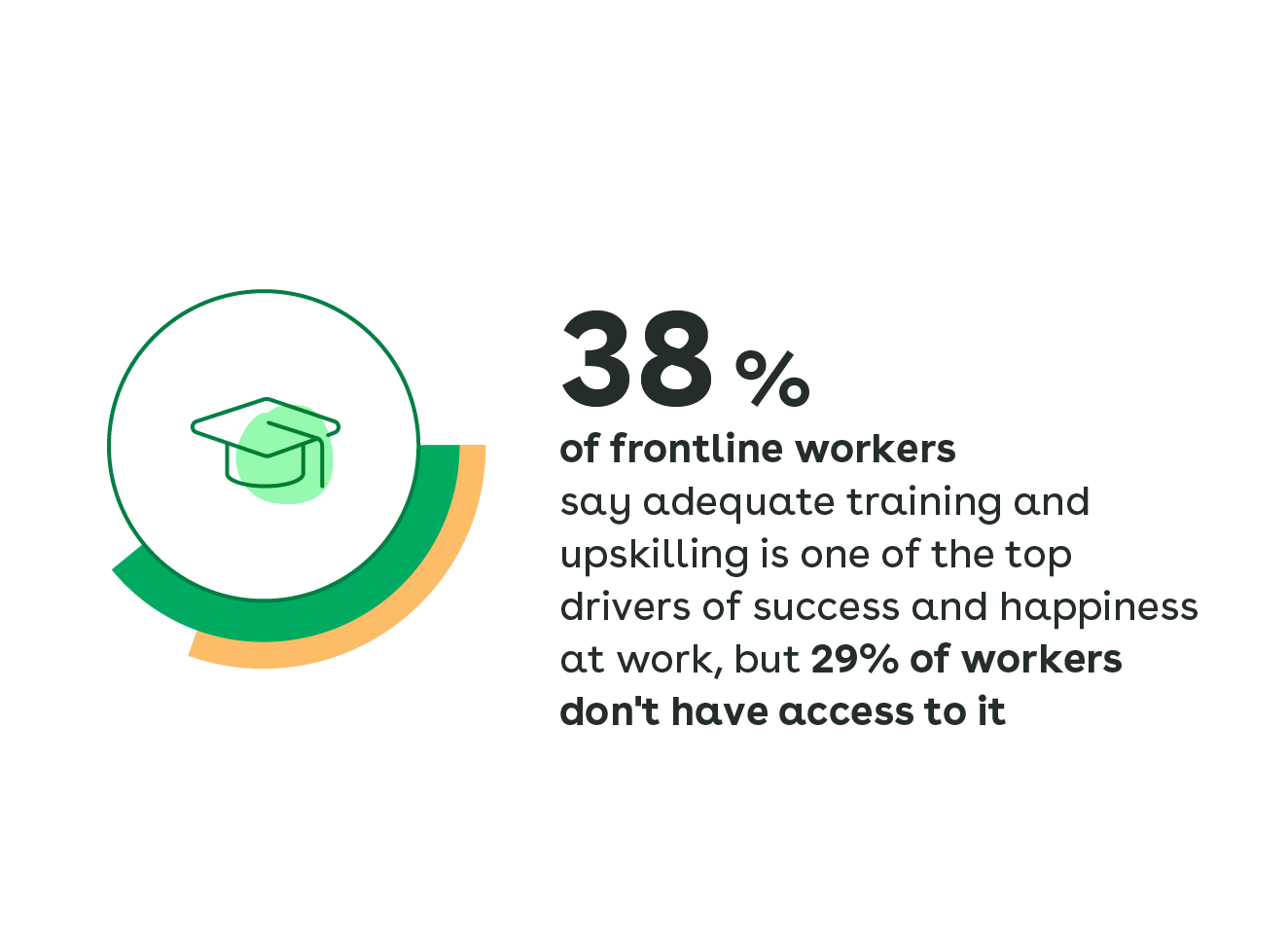The Deskless Report 2023
Workers are desperate for stability, frontline managers are burned out, and corporate leaders are trying to look to the future—but aren’t sure of how to get there. What’s the solution?

Workers are desperate for stability, frontline managers are burned out, and corporate leaders are trying to look to the future—but aren’t sure of how to get there. What’s the solution?

For The Deskless Report, we polled over 1,200 corporate leaders and frontline managers and workers to explore the state of the frontline world. The eight key insights we uncovered will open up a discussion around re-defining the concept of frontline enablement, and how communication, feedback, training, technology and other key drivers can come together to give frontlines what they need to get things done.
Get the full report here, but here’s a glimpse at the insights we uncovered.
Frontline managers play the crucial role of disseminating information and executing on corporate initiatives, while managing daily operations, training, and parsing frontline feedback. In fact, workers rely on their direct manager for 8 of the 10 categories of critical information, shared primarily through in-person conversations, email, and texts/phone calls. But without access to the right technology and support, they’re overburdened as they try to navigate absenteeism, disengagement, and turnover, while trying to “stay afloat” amid the chaos.
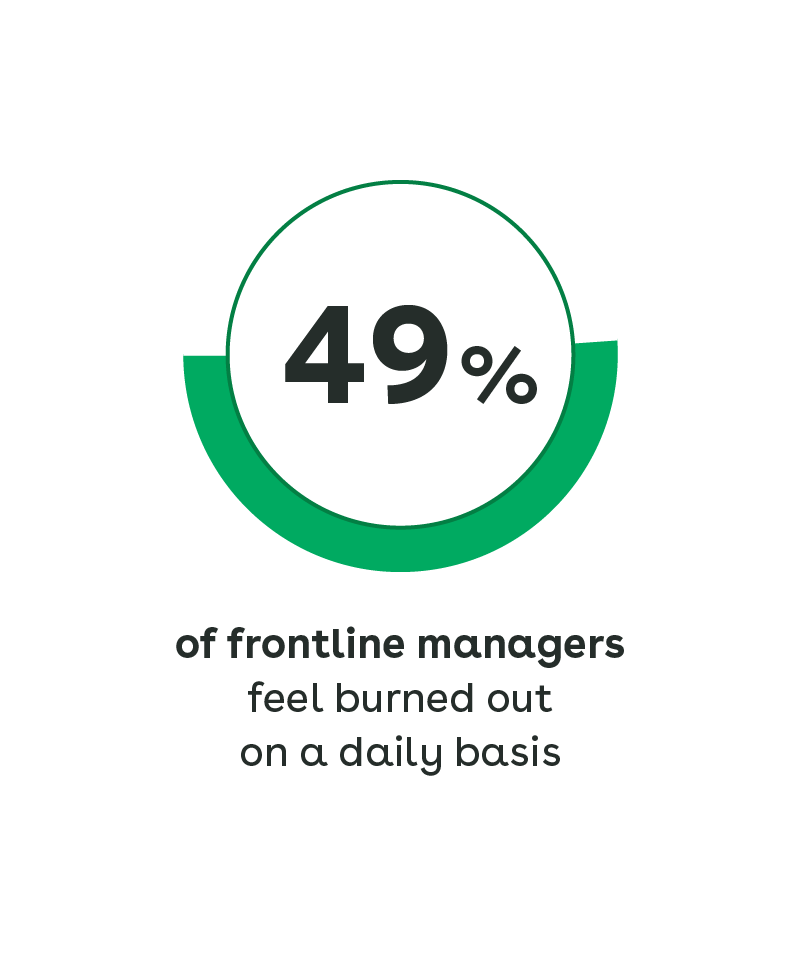
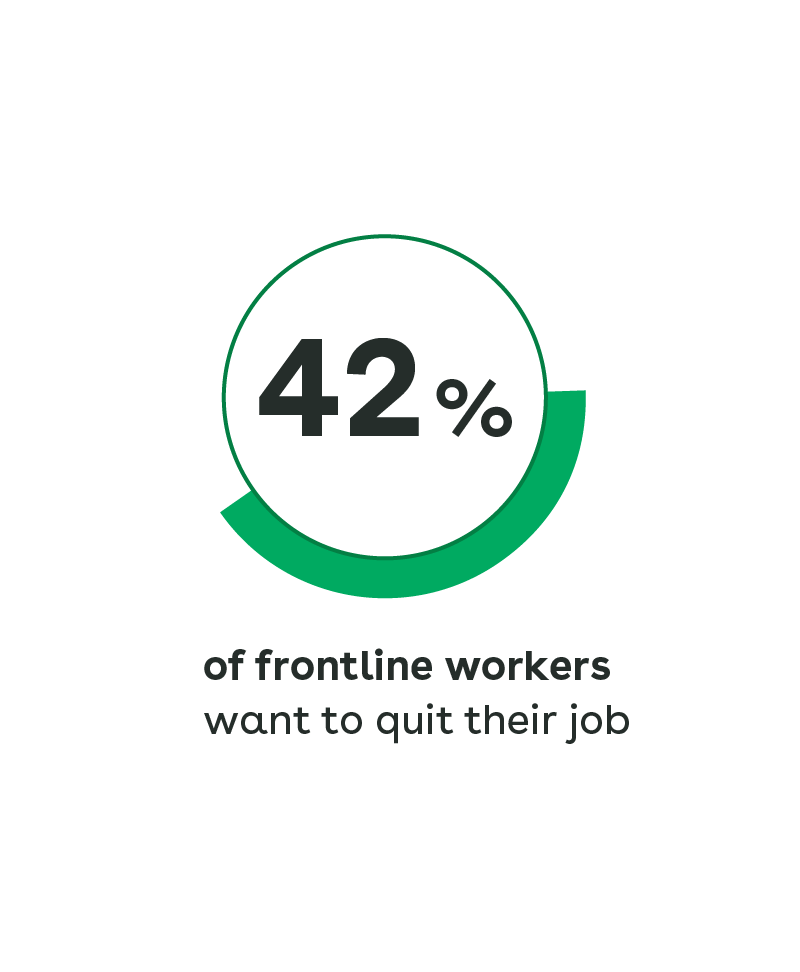
Despite organizations advocating for cultural initiatives (which are crucial drivers of success and happiness), workers are still struggling with more fundamental needs around livelihood and stability. While 68% of workers have access to a strong employee community (the second-ranked contributor to worker success and happiness), only 47% have access to equitable compensation (the top-ranked contributor to success and happiness, impacted by wages, scheduling and availability of work). As a result, frontline workers’ desire to quit has increased.
Top-down and ad-hoc approaches to communication—focused on in-person, text, and email channels—are prevalent in frontline infrastructure. With organizational leaders without a feedback loop, managers acting as messengers, and workers left to interpret fractured communication from multiple sources, the inefficiencies caused by one-way communication may have finally come to a breaking point.
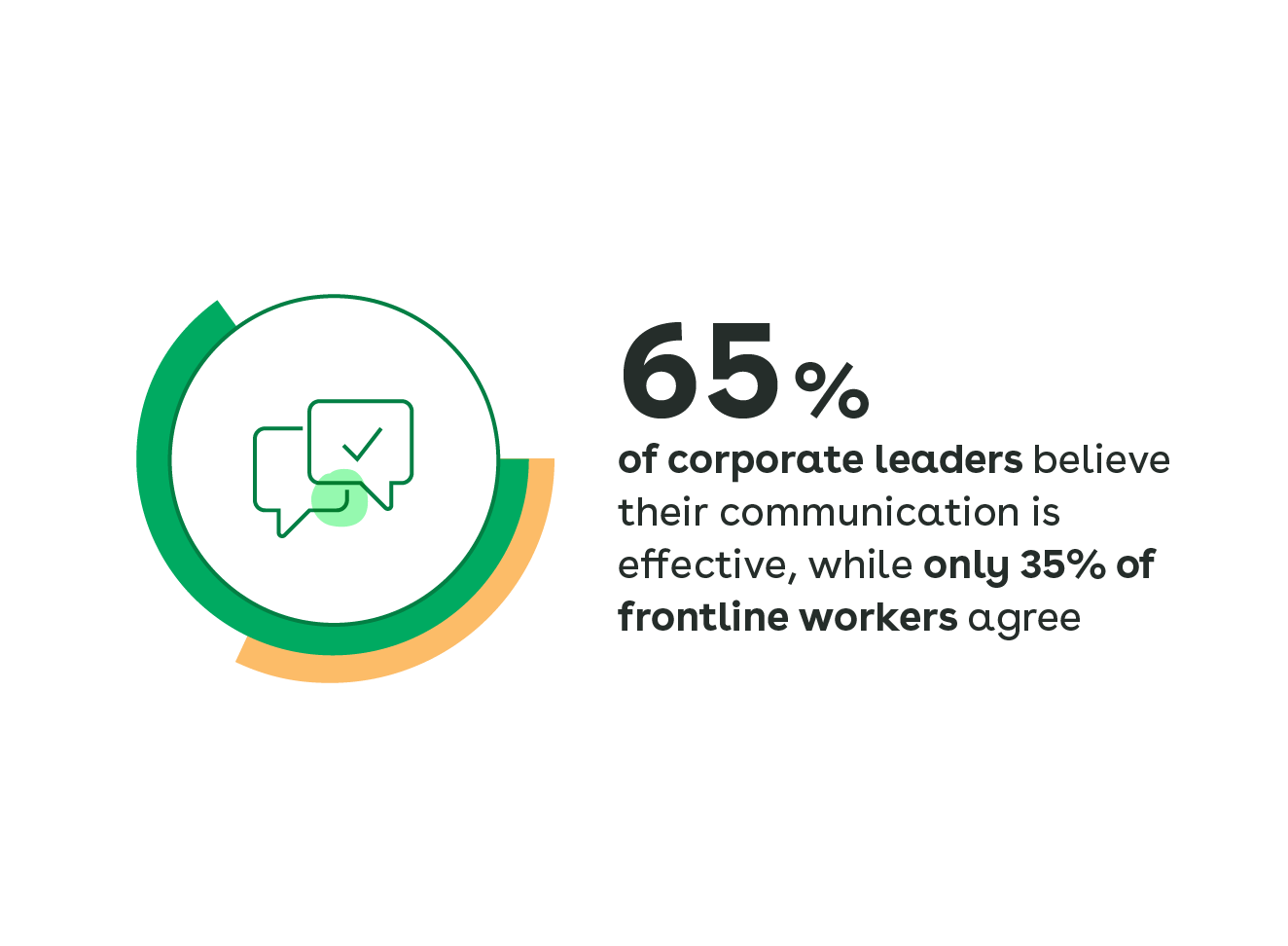
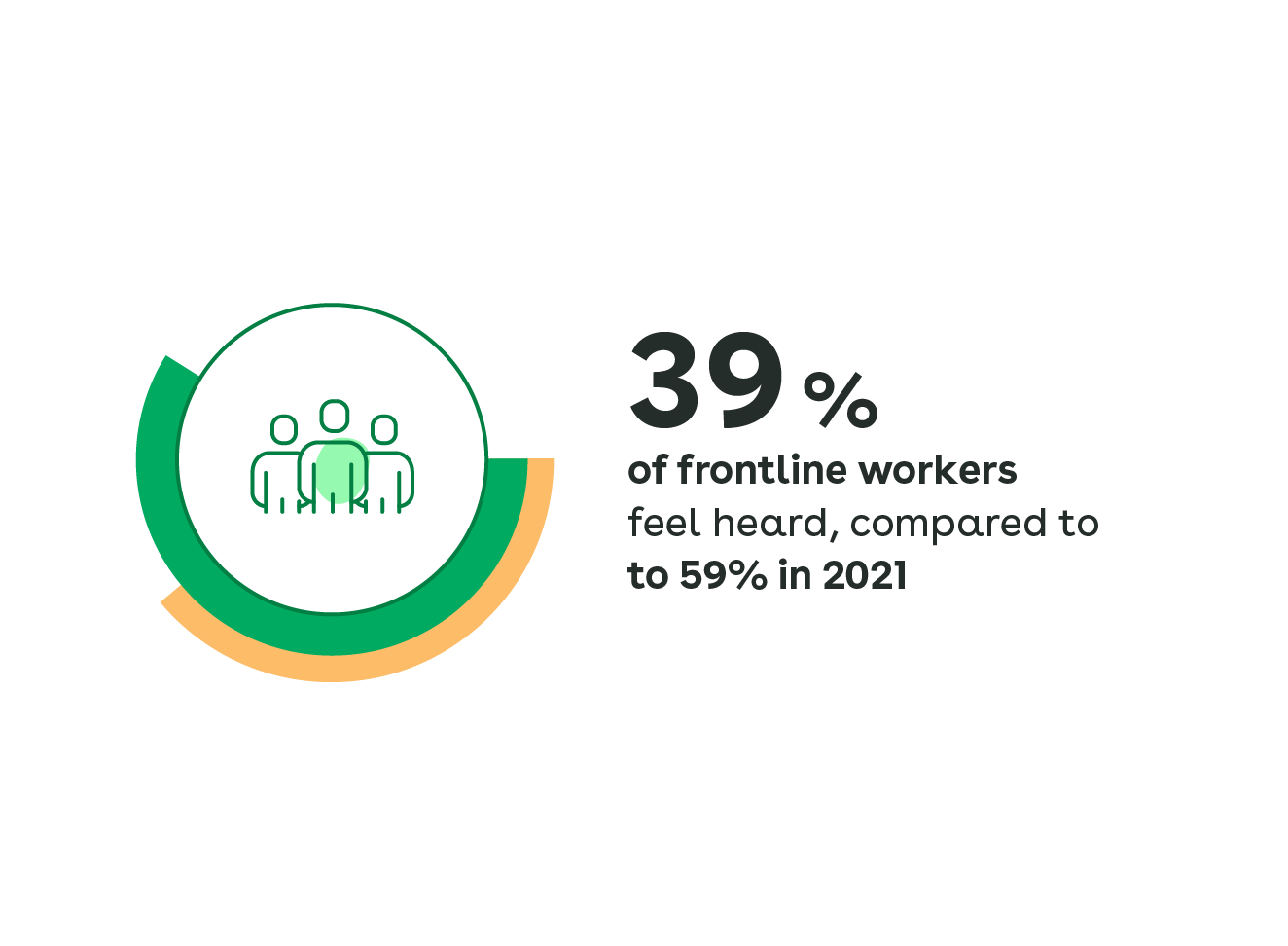
Feedback in frontline organizations is still primarily unstructured and HR-focused, geared toward compliance and mitigating liability, rather than best practice-sharing or continuous improvement. As a result, frontlines feel unheard—and organizations are missing out on the breadth of feedback that could add value and drive business outcomes.
The training programs in frontline organizations still tend to leverage “old school” systems built for deskbound workforces—if at all. The real training is happening informally and unstructured, leading to inconsistencies and missed opportunities for high-value upskilling. Training in the flow of work is the future, but it needs to be approached with technology purpose-built for the deskless workforce.
